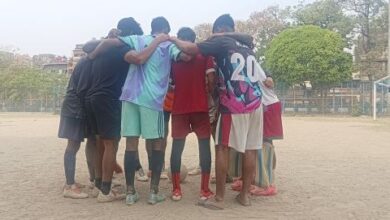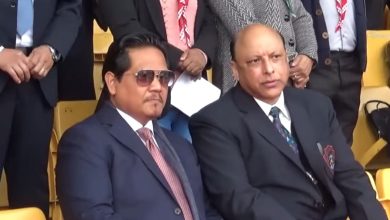Circles of trust & mistrust
As the Olympics commence amid protests, Sunday Monitor looks back at the Games’ history of scandals & successes & introspects about domestic performance

The Tokyo Olympics 2020 started on July 23. Japan’s Prime Minister Yoshihide Suga promised a safe Games amid the raging pandemic. However, the mood in Tokyo city does not reverberate the emotions of the premier, and rather, ricochets between anger and frustration. Protests have been raging in the Japanese capital city as cases of Covid-19 continue to rise. While citizens want the government to spend the Games budget on healthcare and fighting the pandemic, the political will is trajected towards boosterism.
The Olympics this time is different. The Games were postponed last year because of the pandemic and it is being held this time, though the virus has barely shown any let-up in its mutation rate and spreading havoc. For sportspersons, it is both a hazard and a relief at the same time. While the health of every sportsperson is jeopardised, there is also the fact that they are up and running on track after a year’s hiatus.
At a juncture like this, one should not ignore the apprehensions of the public as mere cynicism as several participants in the Games have already tested positive. The Games will be held without an audience, which is an uncanny experience for every sportsperson.
“These are extraordinary circumstances. Athletes are performing under tremendous pressure. They are performing without spectators, which is unthinkable. Despite the controversy arising out of the hosting of the Tokyo 2020 Olympic under a bio bubble we thank Japan for doing the unthinkable to host this mega event during this extraordinary time, the hosting of the Olympics is a manifestation of the spirit of the athletes of the world to unite. This event gives hope and inspiration to the billions of youth and parents around the world,” said John Kharshiing, the working president of Meghalaya State Olympics Association (MSOA).
History & scandals
The Olympics, as we all know, started over 3,000 years ago in Greece. That was the ancient form of recreation. The modern Games were the brainchild of Pierre de Coubertin of France who visited Greece and realised the value of physical education among the youth through the Olympic Games. In 1892, he proposed the idea of reviving the Olympics as an international athletic competition every four years. Two years later, the International Olympic Committee (IOC), which has become the governing body of the modern Olympics, was formed.
In 1896, the first Games of the modern times were held in Athens. As time and history created ripples in the subsequent years, the Olympics were halted more than once. Even before the unpredictable Covid-19 pandemic occurred, the Games were disrupted about a century ago by World War I. The event, which took off as internationally with the participation of over 3,000 athletes from various disciplines, was again disrupted in 1940 and 1944 owing to another bout of violence and killings in the name of World War II.
While the idea of Olympic oath was conceived in 1920, the torch or the Flame was first inaugurated in 1928 in Amsterdam. Unlike popular beliefs, there was no torch relay in the ancient event. The custom of torch relays was, however, present in other ancient Greek athletic festivals. The practice of carrying a torch was later instituted at the 1936 Olympic Games in Berlin.

Olympics have witnessed the scripting of history as well as unravelling of scandals over centuries. One of the oldest scandals in the Games was Emperor Nero’s chariot win. The royal entrant in the chariot race declared himself the winner even after he fell off the chariot in 67 AD.
The scandals at the Games got better over the years and were more compelling than the numerous sporting successes. In 1904, an American marathon runner by the name Fred Lorz lost the crown after it was found out that he hitch-hiked a part of the distance after getting exhausted. Among the latest events was the shaming of sprinter Marion Jones, the golden girl of Olympics 2000, who was accused of using steroids. Drug use marred the Games several times and names like Carl Lewis and Ben Johnson turned infamous following shocking revelations.
This year, Win Htet Oo, an elite swimmer from Myanmar, created flutter when he refused to compete in the Games because he did not want to represent the country’s military junta in the international sports event. In fact, the 27-year-old sportsman criticised the IOC for allowing the military government to send a delegation to Tokyo.
Nonetheless, a sports enthusiast would always want to remember and be reminded of the Games for the right reasons. For instance, who would not relish the success of Jesse Owens in 1936 when he queered the pitch for Adolf Hitler, who wanted to witness a racial superiority on the tracks? Owens won four golds in Berlin and turned into a cultural icon.
Remember Nadia Comaneci? She became the first gymnast in the Games to score a perfect 10 in the event in Montreal in 1976. Pugilist Muhammad Ali rose to prominence after he won the gold medal in the lightweight category in 1960.
This Olympics in Tokyo, Horigome Yuto of Japan became the first street skateboarder to win the gold in the discipline’s debut this time. Brazil’s Kelvin Hoefler won the silver medal.
The stories of the Olympics are intriguing and inspiring at the same time. For India, which has sent some of the best names in respective disciplines to Tokyo, the Games this year would mean a lot, especially at a time when the country is struggling to reduce the impact of Covid-19 second wave and bracing for a third one.
The state story
Among the sportspersons in the Indian contingent, there are many from the northeastern states like Assam, Manipur and Sikkim. Mirabai Chanu, the Manipuri weightlifter in the 49kg category, has already made the country proud by winning silver on Day 2 of the Games.
Meghalaya, despite having a poll of talented athletes, does not have anything to boast about this Olympic season. However, MSOA chief Kharshiing says the state Olympics body has set a vision for the 2028-32 Games and is training the talents likewise. “It is time that the focus should divert from football, a more popular sport and a team game, to other disciplines of sports. We need to create a sporting culture,” he informs, and adds that India, which has sent participants to only 18 disciplines, has a long way to go in its performance in the Olympics.
Kharshiing is hopeful that the new education policy of the Government of India that makes sports mandatory will help in improving the sports scenario and help in the making of more athletes for the future Games. As far as Meghalaya is concerned, he says the state body is working hard towards fulfilling the state vision.
On the Tokyo Olympics, Kharshiing says, “It is a symbol of unity and it is a great relief to have the event (during this difficult time).”
Photo courtesy: Pexels & MSOA





